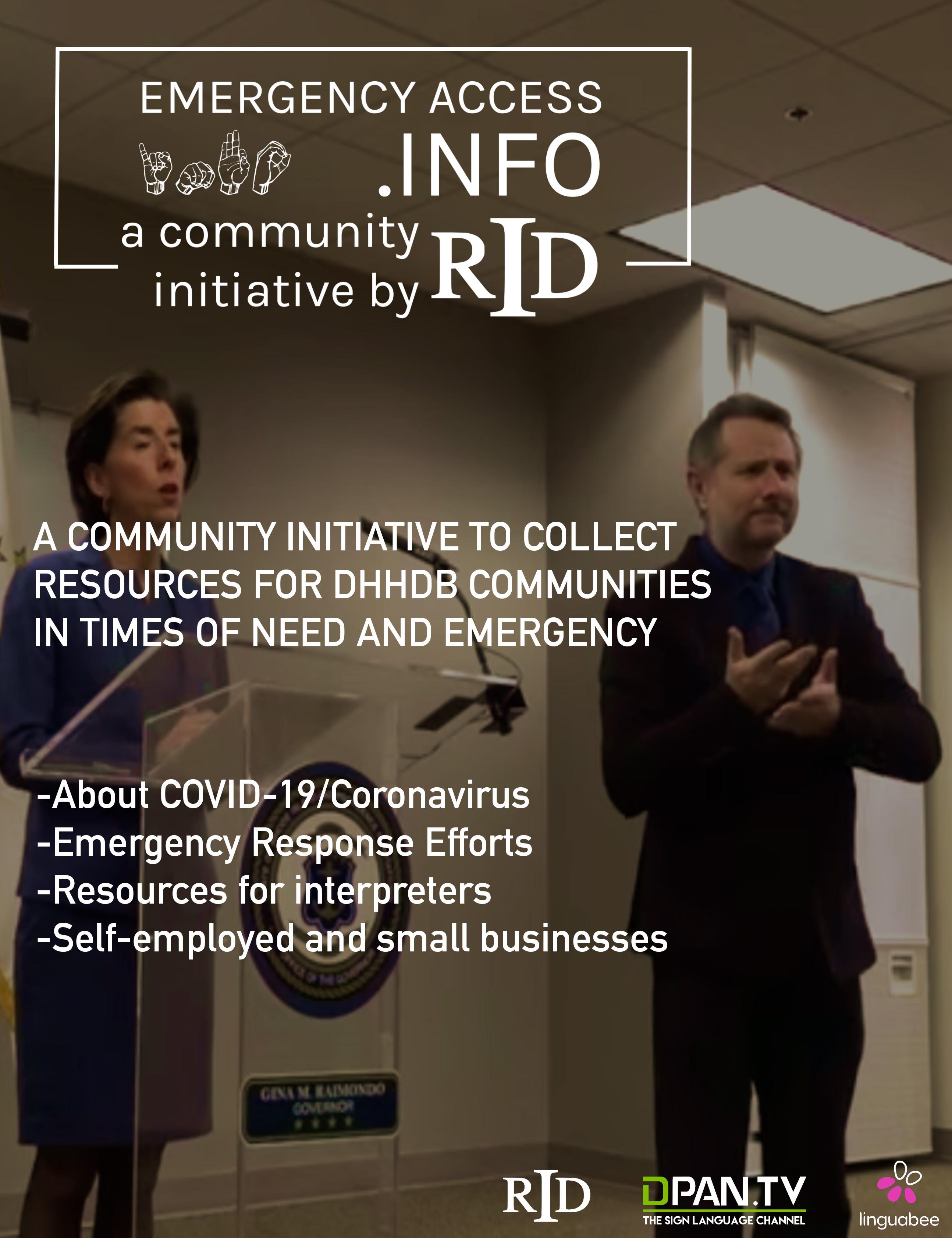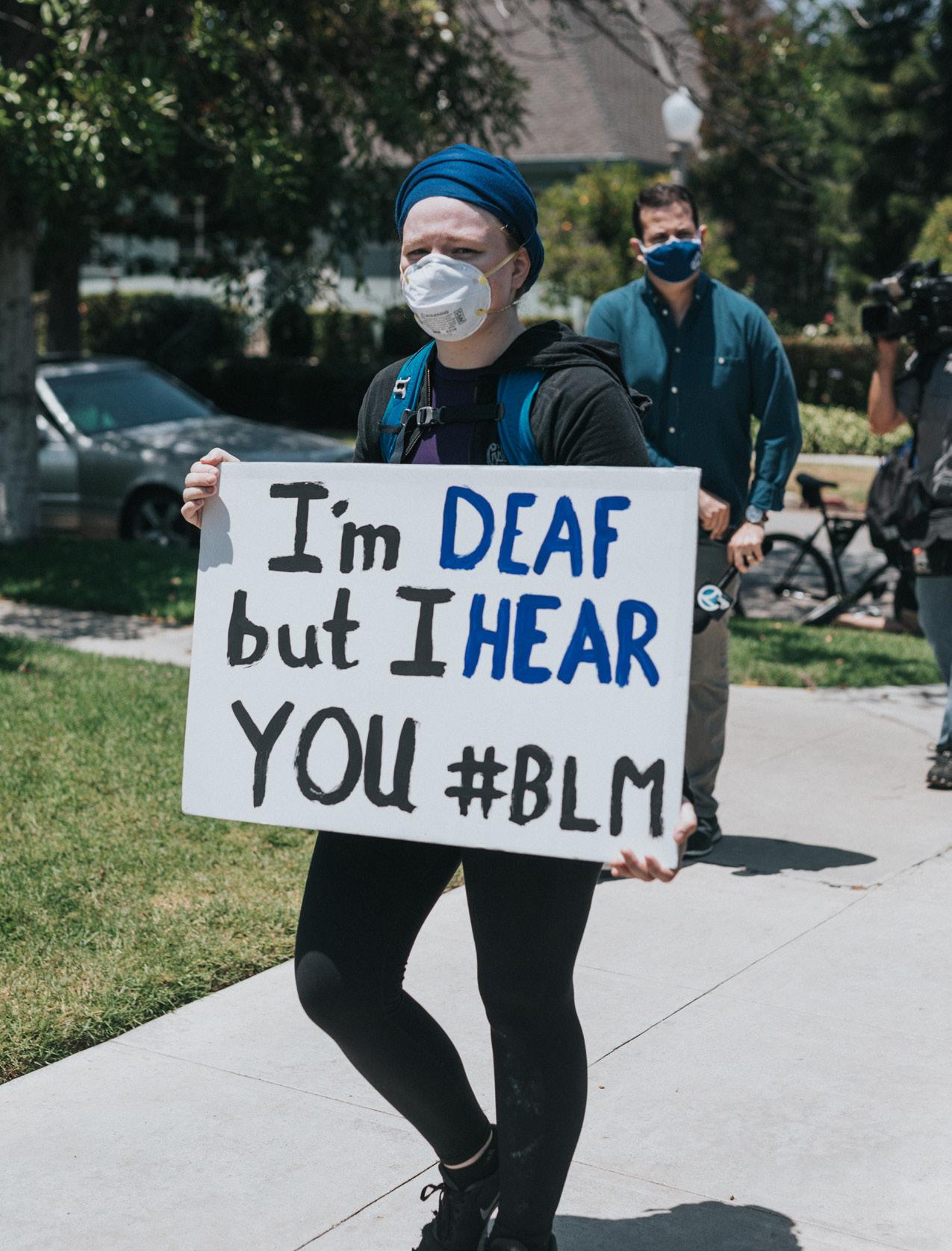
4 minute read
EmergencyAccess.info
5
An interview with Richard McCowin
Interview conducted by Kelly Brakenhoff, NIC
Did you watch the interpreted press conferences in Omaha during the pandemic?
Yes, I watched the daily press conferences and appreciated them because having access to the news alleviated the Deaf Community's fears. Interpreted news bridged the gap between the Deaf The white interpreter was a CODA woman named Jan Bourne. She passed away last year I believe, she was in her 70s. Anyway, her interpreting skills were phenomenal because she was a CODA
Community and the community of people who can hear. We felt and her family was well known in Nebraska and Iowa. Watching the news through that small picture in picture screen helped me learn important issues back in the 1970's and 1980's. Once she
more involved in what's happening at the local and state levels by accessing these broadcasts in our language.
You know, these times are unprecedented. This is the first time we've had situations like the coronavirus, COVID-19, and Black Lives Matter. If it wasn't for coronavirus, would we have had interpreters for press conferences about the Black Lives Matter protests? I don't know. moved away, the TV station didn't replace her. Recently, with COVID-19 and BLM we finally have interpreted news again.
You've traveled to many states through your work with the National Association of the Deaf. You're aware of issues in other states about white interpreters matched with people who are black and deaf. How is your experience in Nebraska compared to other regions of the US?
You grew up here in Nebraska, did you feel white interpreters It depends. Here in Nebraska, the number of black deaf people have been able to represent you well as a Black man? is very small compared to southern states from Texas all the way I think the interpreters I've had in Nebraska are fine. When I was through Florida and up the East coast all the way to New York. younger, one of the Omaha TV stations, WOWT, had an interWhen you look at demographics in those places, there are prefpreter in the corner of the screen during their evening newscasts. erence issues between white interpreters and black deaf people. In the Midwest, we don't experience those same issues because of our small population. Our greatest If an interpreter isn't a person of concern is whether the interpreters we have are fluent ASL users than whether color but is sensitive to difficult they are interpreters of color. However, there are sensitive situations situations, then they can still be that arise when an interpreter needs to be aware of their own skills and knowledge. If an interpreter isn't a person of an effective interpreter in our color but is sensitive to difficult situations, then they can still be an effective region. 5 interpreter in our region. www.rid.org 29
Richard McCowin VP National Associaiton of the Deaf Omaha, NB

Richard graduated from Nebraska School for the Deaf (now closed) and Gallaudet University with a bachelor of arts degree in psychology. For over 26 years, Richard has been employed at the US Postal Service in Omaha where he has been a union steward for the local American Postakl Workers Union (APWU) and recognized for his many outstanding contributions on behalf of deaf and hard of hearing postal workers. For over 17 years, Richard taught ASL at Metropolitan Community College in Omaha and received awards for Teaching Excellence. Richard has been involved with NAD for 30 years as part of his lifelong passion for advocacy and community activity, and has held various positions in different organizations. He was the Vice President of National Black Deaf Advoctaed (NBDA) and Midwest Athletic Association of the Deaf (MAAD). Now, he is President Emeritus of the NNebraska Association of the Deaf (NeAD). HE strongly believes that NAD is the true organization which preserves and protects the right and welfare of deaf and hard of hearing Americans. In his spare time, he enjoys reading books on non-fiction and documentary issues. He has an adult daughter Megan.
Acting in Solidarity: "How has this impacted the mindset on situations involving our Black, Deaf community"?
Responses collected from Black interpreters after asked about how they are doing during this time in history
Happy to serve Black Deaf Mentally and physically exhaustpeople who are often ignored ed. even by the white Deaf community. Why were we not good
Pride in my Black sisters enough to get all this work and brothers to keep doing Interpreting a lot of rallies and before but now when the interwhat we have ALWAYS done even protest and have not had time to preting industries "need" us then when the light was not shined process things myself. they call? on us. My focus is not on Allys, Love working with all these beautiful Black and Brown people to change our world. my focus is on us as Black interpreters and what we have endured, and are still enduring, in an industry that refuses to acknowledge our value.











